computer vision
Latest

MIT researchers use radio waves to help robots find hidden objects
With a wrist-mounted camera and an RF reader, RF Grasp can find and pick up objects, even if they're initially hidden from sight.
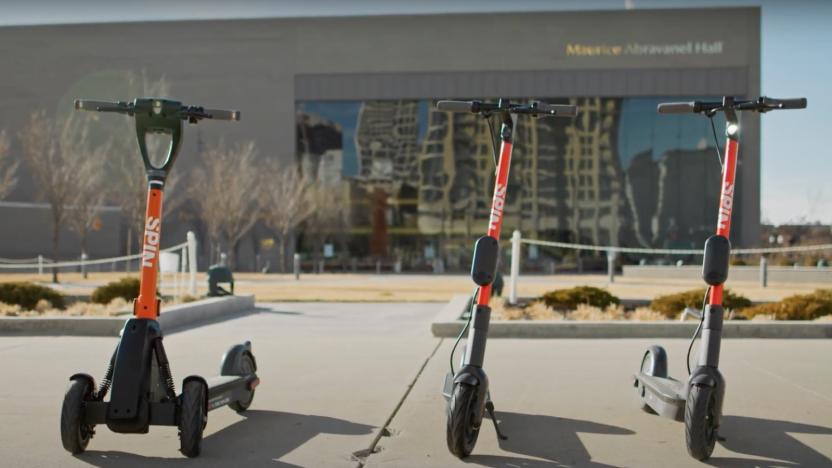
Spin will test scooters with remote parking capabilities this spring
Spin will start testing 300 e-scooters that feature remote parking capabilities this spring in Boise, Idaho before bringing the tech to other markets in North America and Europe.

Voi tests e-scooters with built-in pedestrian detection
The company is partnering with another startup to add pedestrian detection to some of its scooters as part of a year-long test.

Facebook's new shopping AI knows what exactly you're looking for
Facebook's new GrokNet computer vision system can identify the attributes of products in virtually any picture, making any photo you see a potential shopping experience.

Clearview AI leak names businesses using its facial recognition database
One of the most vehement arguments against Clearview AI's practice of scraping billions of photos from millions of public websites to build its facial recognition database was that the company's data storage and security protocols were both untested and unregulated. On Wednesday, Clearview AI claimed that its facial recognition database was hacked, giving intruders access the the company's full client list, which Buzzfeed News has acquired.

Facebook buys startup using AI vision to find your location (updated)
Facebook might have just acquired a key ingredient for its augmented reality glasses. TechCrunch has discovered a filing indicating that Facebook has bought Scape Technologies, a London-based startup using computer vision to determine your location beyond the capabilities of GPS alone. Its cloud-based "Visual Positioning Service" translates images into 3D maps that deliver a precise outdoor location across entire cities -- important when you need to know exactly where a store is on a street block.

Google AI tool helps conservationists (and the public) track wildlife
Google is quickly putting its wildlife-spotting AI to good use. The internet giant has launched a Wildlife Insights tool that helps conservationists track wildlife by not only parsing their photos, but sharing them in a searchable public website. The AI automatically tosses out photos that are highly unlikely to include animals and tries to label the animals it does spot, dramatically speeding up a laborious task. That, in turn, helps researchers track animal populations as they're affected by climate change and direct human intrusion.
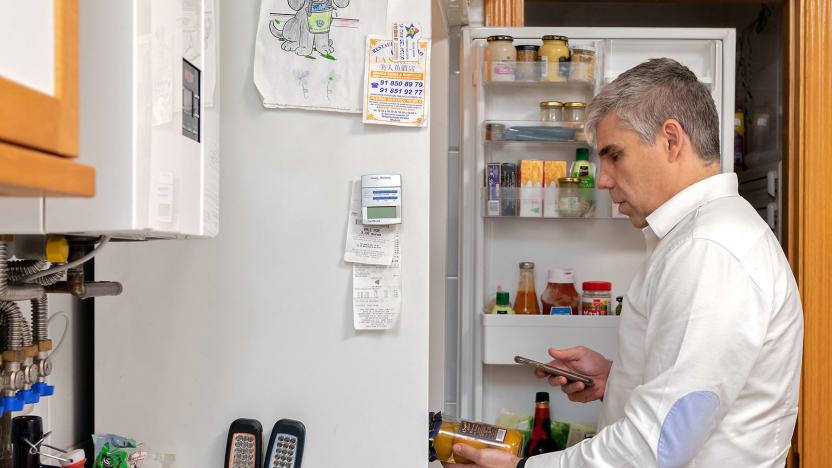
Microsoft's Seeing AI app helps the blind in five more languages
Microsoft's Seeing AI has been helpful for describing objects and text to the blind, but there's been a key problem: it has only been available in English, making it a non-starter if you don't speak the language. That won't be a problem for some people from now on. Microsoft has updated the iOS-only app with support for Dutch, French, German, Japanese and Spanish, letting many more people read signs, interpret someone's facial expressions and otherwise navigate the world using spoken cues in their native tongues.
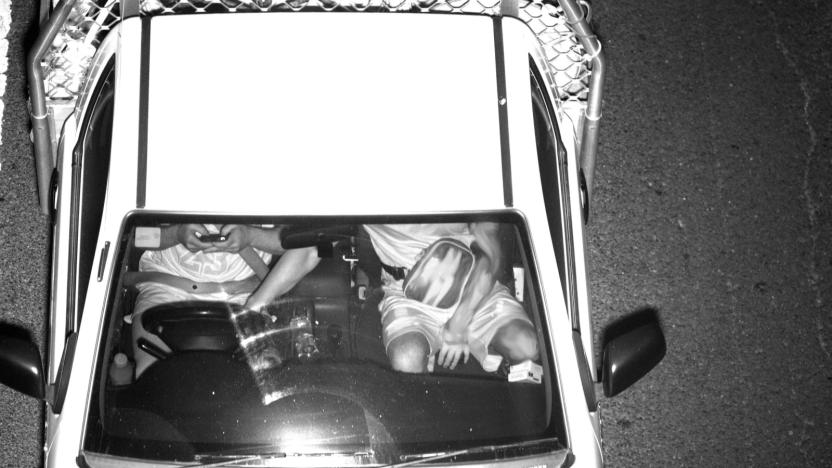
Australia rolls out AI cameras to spot drivers using their phones
Phone use while driving remains a problem in many parts of the world, in no small part due to the difficulty of enforcing laws. How do you catch someone in the act? Australian police might not have that problem. The New South Wales government has started using the first cameras that can automatically detect when drivers are using their phones. The system uses AI to review photos for telltale signs of phone use, with human reviewing the flagged images to prevent any false positives. There will be both fixed and trailer-mounted cameras on hand to spot distracted motorists.

Solar energy 'breakthrough' could replace fossil fuels in some industries
If solar energy is truly going to take over from fossil fuels, it needs to be hot enough for not only generating power, but replacing industrial processes outright -- and even the 1,049F of the best solar concentrator systems wouldn't cut it. Heliogen, however, may have finally cracked that barrier. The Bill Gates-backed startup has successfully concentrated solar energy at "breakthrough" temperatures above 1,832F, making it toasty enough to replace fossil fuels for industrial tasks like producing cement or steel.
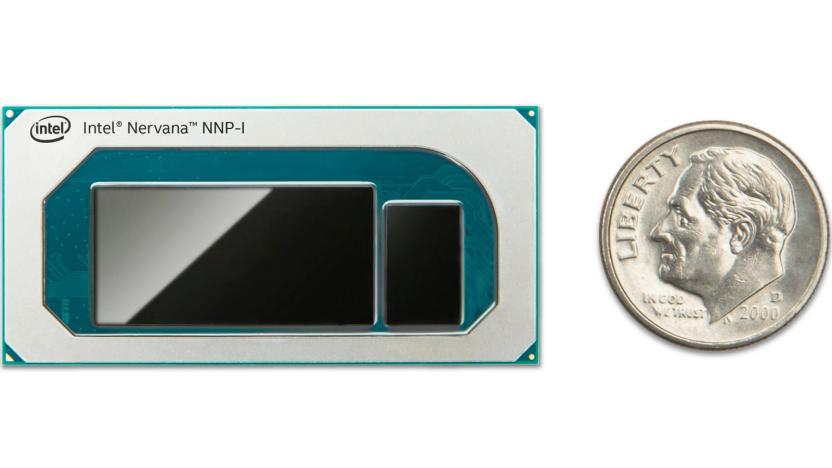
Intel unveils its first chips built for AI in the cloud
Intel is no stranger to AI-oriented chips, but now it's turning its attention to those chips that might be thousands of miles away. The tech firm has introduced two new Nervana Neural Network Processors, the NNP-T1000 (below) and NNP-I1000 (above), that are Intel's first ASICs designed explicitly for AI in the cloud. The NNT-T chip is meant for training AIs in a 'balanced' design that can scale from small computer clusters through to supercomputers, while the NNP-I model handles "intense" inference tasks.

AI can help doctors spot brain hemorrhages faster
AI is already capable of discovering medical conditions with a high degree of accuracy. However, brain hemorrhages are particularly challenging -- false positives slow things down, while missing even a tiny hemorrhage could be deadly. The technology might be ready for it, however. UC Berkeley and UCSF researchers have created an algorithm that detected brain hemorrhages with accuracy better than two out of four radiologists in a test. The key was the algorithm's finely-detailed training data.

Palmer Luckey's company is making drone-ramming drones
Oculus co-founder Palmer Luckey and his company Anduril Industries have drawn flak for their pursuit of controversial government and military contracts, and that uproar isn't about to subside any time soon. Anduril has unveiled the Interceptor, a "counter-drone" built solely to take down other robotic fliers by ramming them at high speed. It requires human operators' permission for takedowns, but can be cued through AI and automatically acquire targets using computer vision. The company is hoping this will protect military units and key infrastructure against hostile drones, whether they're improvised bombers or purpose-built recon vehicles.
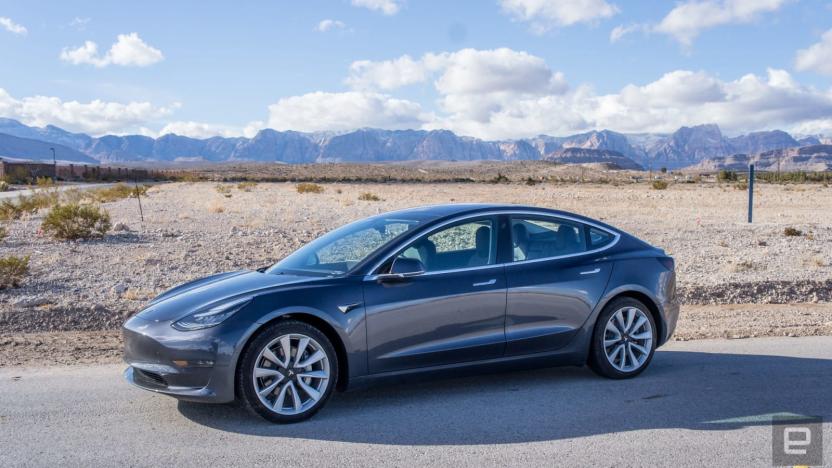
Tesla reportedly buys AI startup that helps self-driving cars see
It's safe to say that Tesla's self-driving efforts haven't gone smoothly. It took the better part of a year for Smart Summon to arrive, and there's not much time left to fulfill goals of full self-driving (on city streets) before the end of 2019. The automaker might speed its progress soon enough, though. CNBC claims that Tesla is buying the computer vision startup DeepScale. The company specializes in making accurate AI vision technology practical for the low-power, low-memory chips often found in cars.
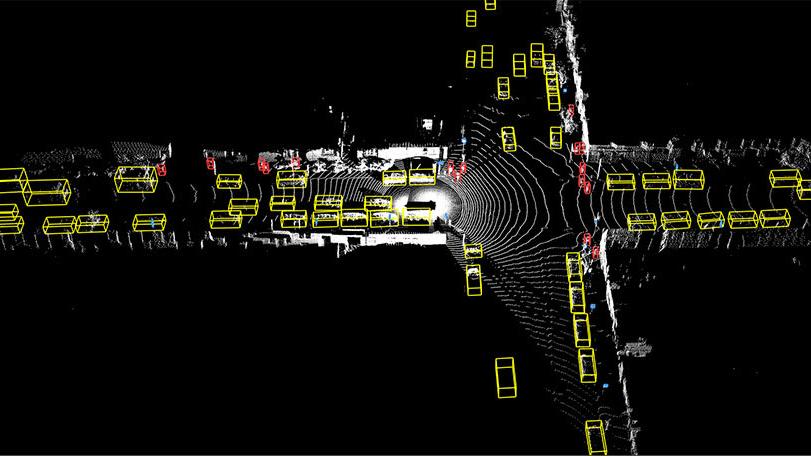
Waymo shares some of its self-driving car data to help researchers
Self-driving car data is intensely valuable, and it's frequently considered one of Waymo's advantages -- it has more experience than virtually anyone. Now, however, the company is sharing some of that knowledge with the rest of the world. It's launching a Waymo Open Dataset that gives researchers free access to synced camera and LiDAR data from the company's autonomous vehicles across a variety of driving conditions and locales. It only covers 1,000 driving segments of 20 seconds each, but that's 200,000 frames per sensor, 12 million 3D object labels and 1.2 million 2D labels -- that could be a lot to work with.

DeepMind uses AI to track Serengeti wildlife with photos
DeepMind has joined the ranks of those using AI to save fragile wildlife populations, and it's doing that on a grand scale. The company is partnering with conservationists and ecologists on a project that uses machine learning to speedily detect and count animals in "millions" of photos taken over the past nine years in Tanzania's Serengeti National Park. Where it normally takes up to a year for volunteers to return labeled photos, DeepMind has developed a model that can label most animals at least as well as humans while shortening the process by up to nine months That's no small challenge when animals seldom cooperate with motion-sensitive cameras -- the AI can recognize out-of-focus cheetahs or fast-moving ostriches.

Aircraft lands itself truly autonomously for the first time
Many airliners can land automatically, but they don't really land autonomously -- the airport is guiding them in with a radio signal (the Instrument Landing System). And when many smaller airports don't have this feature, it's not even an option. Researchers at Technische Universität München might just make true autonomous landing a practical reality, though. They've successfully tested a system that uses a combination of computer vision and GPS to have the aircraft land itself.

Walmart uses AI camera tech to track checkout theft at 1,000 stores
Walmart's early use of AI at its stores isn't just for the sake of convenience. The retailer has confirmed to Business Insider that it's using camera-based computer vision tech to deter theft and losses at its checkouts (including self-checkouts) in over 1,000 stores. The simply titled Missed Scan Detection program notifies attendants if an item moves past a scanner without an actual scan, giving staff a chance to step in. Most of the incidents are unintentional, such as forgetful shoppers or fatigued cashiers, but Walmart is clearly hoping this will deter thieves hoping to make off with unscanned items.

Robotic dishwasher saves restaurants from drudgery
Restaurants and other eateries are facing a shortage of dishwashers, and for understandable reasons -- it's inglamorous work with low pay. Dishcraft, at least, thinks robots can fill that gap. It just revealed a robotic dishwasher intended to clean large volumes of plates in commercial kitchens. Once customers stack plates on a special cart, a staffer just has to wheel that cart into the robot. From there, the machine flips the plate upside-down and uses both cold water and a brush to wipe the surface clean within seconds. AI-guided cameras then scan dishes to see if dishes need another scrub before they head to the dish rack.

Autonomous 'roboats' can assemble into floating structures
Autonomous boats might soon do a favor for people who have no intention of charting a course. Researchers at MIT and AMS Institute have developed a new version of their 'Roboat' that can identify and latch on to fellow robots to form different structures, whether it's a foot bridge, a garbage collector or a stage for a concert. The boats use cameras, lidar and computer vision algorithms to look for fellow bots with QR-like tags (to help determine their relative position), and then position themselves for docking on command. They also know to try again if there's a botched attempt.


